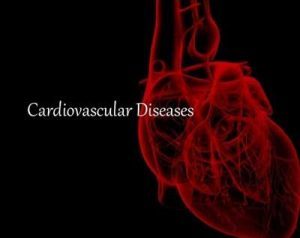- Home
- Editorial
- News
- Practice Guidelines
- Anesthesiology Guidelines
- Cancer Guidelines
- Cardiac Sciences Guidelines
- Critical Care Guidelines
- Dentistry Guidelines
- Dermatology Guidelines
- Diabetes and Endo Guidelines
- Diagnostics Guidelines
- ENT Guidelines
- Featured Practice Guidelines
- Gastroenterology Guidelines
- Geriatrics Guidelines
- Medicine Guidelines
- Nephrology Guidelines
- Neurosciences Guidelines
- Obs and Gynae Guidelines
- Ophthalmology Guidelines
- Orthopaedics Guidelines
- Paediatrics Guidelines
- Psychiatry Guidelines
- Pulmonology Guidelines
- Radiology Guidelines
- Surgery Guidelines
- Urology Guidelines
LDL-C ≥190 mg/dl is Ideal for Primary Prevention of CAD!!

It has been debated every now and then that what is ideal LDL Cholesterol level for primary prevention of Coronary Artery Disease. In case one is taking statins, do they reduce cardiovascular risk among a primary prevention population with low-density lipoprotein cholesterol (LDL-C) levels ≥190 mg/dl? In post-hoc analysis using data from the WOSCOPS, there is sufficient evidence for the short- and long-term benefits of lowering LDL-C for the primary prevention of cardiovascular disease among individuals with primary elevations of LDL-C ≥190 mg/dl. This study has been published in Journal of American College of Cardiology and the data supports the recommendations for statin therapy among adults with LDL-C levels of ≥190 mg/dl who are at increased risk for CVD.
In analysis using data from the WOSCOPS (West Of Scotland Coronary Prevention Study) trial to examine cardiovascular outcomes among participants with primary elevations of LDL-C ≥190 mg/dl who did not have pre-existing vascular disease at baseline. WOSCOPS enrolled 6,595 men (aged 45-64 years) who were randomized to pravastatin 40 mg/d or placebo. Participants in the present analysis were stratified by LDL-C levels into those with LDL-C <190 mg/dl (n = 2,969; mean LDL-C 178 ± 6 mg/dl) and those with LDL-C ≥190 mg/dl (n = 2,560; mean LDL-C 206 ± 12 mg/dl). The primary outcomes of interest were occurrence of coronary heart disease (CHD) and occurrence of major adverse cardiovascular events (MACE). Outcomes were assessed over the 4.9-year randomized controlled trial phase, and mortality outcomes were assessed over 20 years of follow-up.
In the present analysis. a total of 5,529 participants were included and Mean (± standard deviation) LDL-C at baseline was 206 ±12 mg/dl among patients with LDL-C ≥190 mg/dl, and 178 ± 6 mg/dl among those with LDL-C <190 mg/dl. Percentage reduction in LDL-C from baseline with pravastatin among those with and without LDL-C ≥190 mg/dl was of a similar magnitude (approximately 23% at year 1 and 19.5-20% at the end of the trial). Pravastatin reduced the risk of CHD by 27% (p = 0.002) and MACE by 25% (p = 0.004) in both participants with an LDL-C ≥190 mg/dl and in those with an LDL-C <190 mg/dl. Long-term risks of CHD death, cardiovascular death, and all-cause mortality were significantly reduced by 28%, 25%, and 18%, respectively, among participants with LDL-C ≥190 mg/dl originally randomized to pravastatin. The absolute reduction in the risk (ARR) of death at 20 years from CHD, cardiovascular causes, and any cause was at least two-fold greater among patients with LDL-C ≥190 mg/dl (ARR 2.34%, 3.25%, and 5.39%, respectively) compared with those with LDL-C <190 mg/dl. Among individuals with LDL-C ≥190 mg/dl, reduction in LDL-C of >30% or 39 mg/dl (1 mmol/L) was associated with a lower risk of CHD and MACE compared with placebo.
The authors concluded that the present analysis provides robust novel evidence for the short- and long-term benefits of lowering LDL-C for the primary prevention of cardiovascular disease among individuals with primary elevations of LDL-C ≥190 mg/dl.

Disclaimer: This site is primarily intended for healthcare professionals. Any content/information on this website does not replace the advice of medical and/or health professionals and should not be construed as medical/diagnostic advice/endorsement or prescription. Use of this site is subject to our terms of use, privacy policy, advertisement policy. © 2020 Minerva Medical Treatment Pvt Ltd